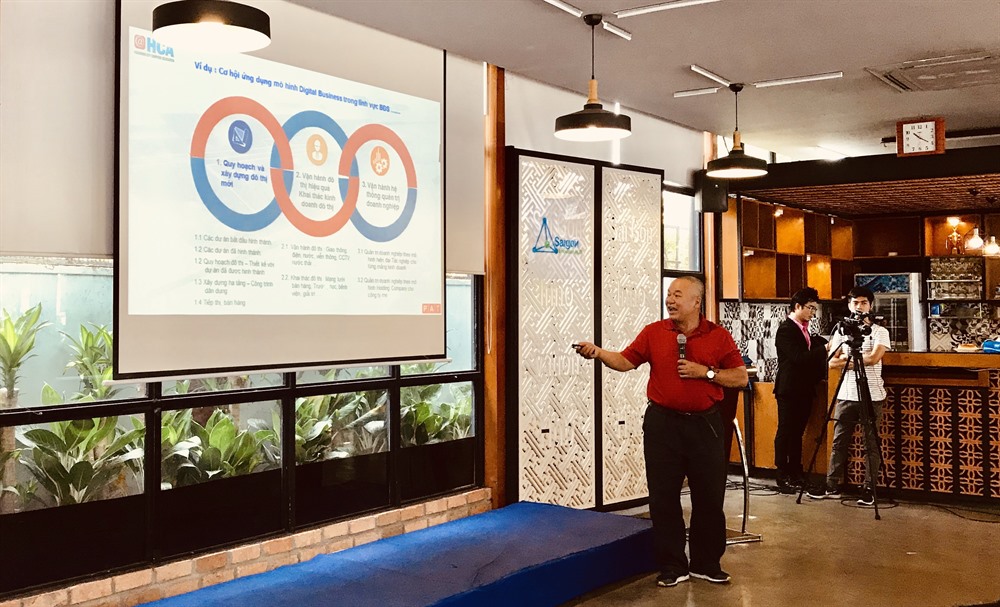Vietnamese businesses have been urged to embrace digital transformation to remain competitive and enhance their value.

Vietnamese businesses have been urged to embrace digital transformation to remain competitive and enhance their value.
Speaking at a seminar on digital transformation held yesterday in HCM City, Phi Anh Tuan, deputy chairman of the city’s Computer Association (HCA) and CEO of PAT Consulting Ltd, said: “Businesses need to change their mindset or they will lose in the digital world.”
Changing from traditional models to new technologies such as Big Data, the Internet of Things (IoT) and cloud computing will enhance production efficiency, he said.
Digitisation changes operational and leadership methods as well as work processes and corporate culture. It can help enterprises increase their revenue by 30 per cent while cutting costs by 30 per cent, according to experts.
Phan Thanh Son, technology director at FPT, said Việt Nam was using digital transformation in e-government, smart city principles and smart technology.
The Government has also created incentive policies for enterprises to use digital transformation.
Vu Anh Tuan, secretary general of the HCM City Computer Association, noted that 97 per cent of Vietnamese enterprises are small- and medium-sized enterprises (SMEs), and if they became digital enterprises, they could make a great contribution to society.
However, not all companies in Việt Nam are ready for it, experts said.
Three factors have prevented companies from digitising, including lack of skills and resources, cybersecurity and a resistant culture.
The biggest obstacle is that companies do not recognise the problem, Tuan said.
Phi Anh Tuan said that they must start now. “You must jump into the water to be able to learn how to swim.”
Digital transformation has brought great value to businesses, but results can be derived even from small digital initiatives, which can be completed within a few months, he said.
He said that businesses should attract key digital talent and create a flexible work-source model that lets them tap into skills-based marketplaces.
“Businesses need to switch from doing traditional business to doing business on digital platforms with products and services integrated with technology, mainly by using robots and artificial intelligence (AI),” he added.
Improving communications, building digital infrastructure and ensuring information security are also needed.
But the most important aspect is the government, which is the foundation, while data is the core, he noted.
Citing the example of Foody.vn website, Tuấn said its value was in the huge amount of data about eating places as well as customers’ food preferences.
“Enterprise value is not only calculated by investment capital, branding and products, but also by the value of the enterprise’s data,” he said.
Nguyen Thu Anh, director of the Việt Nam Digital Economy Centre under the Viet Nam Digital Media Association’s HCM City branch, said Vietnamese enterprises were wasting their resources and assets by not digitally transforming.
Digitisation brings many benefits, including lower operating costs, more customers in a shorter time, and quicker and more accurate decisions, thanks to timely reporting systems.
The meeting was co-organised by the HCM City Computer Association, Việt Nam Digital Economy Centre under the Viet Nam Digital Media Association, Training Centre for International Cooperation, and Saigon Innovation Hub. — VNS





